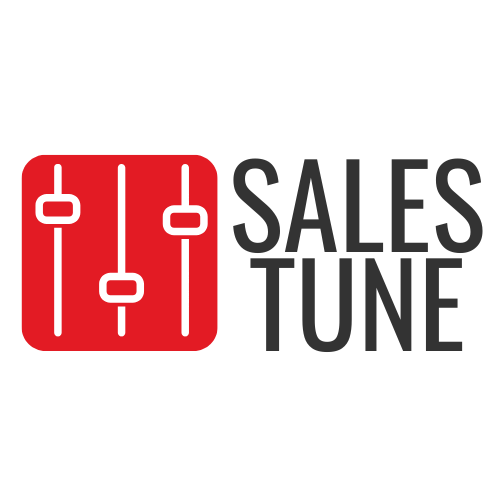
How to build a high-performing sales team in a digital-first world
The sales landscape has changed dramatically. In today’s digital-first world, success isn’t just about making cold calls or attending face-to-face meetings. It’s about leveraging data, technology, and strategic collaboration to drive results.
A modern sales team operates like a well-oiled machine, with specialized roles that work together to generate leads, close deals, and retain customers. But what makes a sales team truly high-performing? It starts with understanding the key roles, their responsibilities, and how they contribute to the bigger picture.
In this article, we’ll break down the essential roles in a modern sales team, explore what sets top performers apart, and outline the steps to build a high-performing sales engine that thrives in today’s fast-paced, tech-driven market.
Key roles and responsibilities in a modern sales team
In a digital-first world, sales teams are no longer just about cold calls and in-person meetings. The landscape has evolved, requiring a mix of strategy, technology, and collaboration. Here are the key roles in a modern sales team and their responsibilities:
1. Sales Development Representative (SDR)
Focus: Lead Generation & Qualification
SDRs are responsible for prospecting and identifying potential customers. They engage with leads through emails, calls, and social selling, qualifying them before passing them to the sales team. Their role is crucial in ensuring that account executives focus on high-potential opportunities.
2. Account Executive (AE)
Focus: Closing Deals
AEs take qualified leads from SDRs and nurture them through the sales process. They conduct product demos, negotiate contracts, and ultimately close deals. Strong communication and relationship-building skills are essential for this role.
3. Customer Success Manager (CSM)
Focus: Retention & Upselling
Once a deal is closed, the CSM ensures customer satisfaction, onboarding, and ongoing support. They identify upselling and cross-selling opportunities, helping to maximize customer lifetime value.
4. Sales Operations Specialist
Focus: Process Optimization & CRM Management
Sales ops professionals streamline workflows, manage CRM tools, and analyze sales data to improve efficiency. They ensure that the team has the right data and insights to make informed decisions.
5. Marketing & Sales Alignment
Focus: Demand Generation & Lead Nurturing
Although not a direct sales role, collaboration with marketing is essential. Marketers generate leads through campaigns, content, and events, while sales teams convert those leads into customers.
6. Sales Manager / Director
Focus: Strategy & Performance Management
Sales managers oversee the team, set targets, and ensure that sales reps are equipped with the right tools and training. They also track KPIs to identify areas for improvement and keep the team motivated.
Traits of a high-performing sales team
What separates an average sales team from a high-performing one? In a digital-first world, the best sales teams don’t just rely on experience and intuition—they leverage data, technology, and collaboration to drive consistent results. Here are the key traits that define top-performing sales teams:
🔴 Customer-Centric Mindset
Successful sales teams put the customer first. They take time to understand customer needs, pain points, and goals, ensuring they offer tailored solutions instead of just pushing a product.
🔴 Data-Driven Decision Making
High-performing teams don’t rely on guesswork. They use CRM data, analytics, and AI-driven insights to track performance, predict customer behavior, and optimize sales strategies. This enables smarter prospecting and more effective conversions.
🔴 Strong Collaboration & Alignment
Sales teams work best when aligned with marketing, customer success, and product teams. This ensures a seamless customer journey, from the first touchpoint to long-term retention.
🔴 Agility & Adaptability
In today’s fast-changing market, adaptability is key. High-performing sales professionals embrace new tools, trends, and strategies—whether it’s social selling, AI-driven prospecting, or remote sales techniques.
🔴 Consistent Training & Development
The best sales teams invest in ongoing learning. Whether through sales coaching, industry workshops, or internal mentoring, continuous skill development keeps them ahead of the competition.
🔴 Resilience & Persistence
Rejections are part of sales, but top performers don’t get discouraged easily. They stay motivated, learn from failures, and refine their approach with each interaction.
🔴 Clear Goals & Accountability
Every high-performing sales team has well-defined targets, KPIs, and accountability measures. They track metrics like conversion rates, pipeline velocity, and customer acquisition costs to drive performance.
A high-performing sales team is not just about hiring great talent—it’s about fostering the right culture, leveraging data, and continuously improving processes. When these traits come together, sales teams can thrive in a digital-first world and achieve sustainable success.
Steps to build a high-performing sales team
Building a high-performing sales team isn’t just about hiring top talent—it’s about creating a structured, data-driven, and customer-focused sales engine. According to Harvard Business Review, the most successful sales teams combine clear strategy, strong leadership, and continuous improvement. Here’s a step-by-step approach to building a winning team:
1. Define Your Sales Strategy & Goals
Start with a clear vision. What are your revenue targets? Who is your ideal customer? Define key performance indicators (KPIs) and ensure your team understands the objectives. A study by McKinsey & Company found that companies with well-defined sales strategies see up to a 30% increase in revenue.
2. Hire the Right Talent for the Right Roles
Don’t just hire for experience—hire for adaptability, problem-solving skills, and customer focus. A strong mix of SDRs, Account Executives, and Customer Success Managers ensures a well-balanced team that nurtures leads from start to finish.
3. Leverage Technology & Data
A high-performing team needs the right tools. Implement a CRM (such as Salesforce or HubSpot) to track interactions, automate follow-ups, and analyze sales trends. According to Forrester Research, 77% of sales leaders say AI and automation improve productivity.
4. Provide Continuous Training & Coaching
Sales techniques evolve, and so should your team. Regular coaching, role-playing exercises, and industry workshops help sharpen skills. Gartner reports that companies with structured training programs see a 10% higher sales quota attainment.
5. Foster Collaboration Between Sales & Marketing
Aligning sales and marketing ensures high-quality leads and a smoother customer journey. Encourage open communication between teams and use shared KPIs to measure success. HubSpot’s State of Inbound Report found that companies with aligned sales and marketing see 38% higher sales win rates.
6. Create a Performance-Driven Culture
High-performing teams thrive on accountability and motivation. Set up clear metrics, provide regular feedback, and reward top performers. A Salesforce study found that organizations with strong recognition programs see 31% lower turnover.
7. Adapt & Innovate Constantly
The digital-first sales landscape is always evolving. Encourage experimentation with new tools, outreach methods, and customer engagement strategies. Teams that continuously innovate outperform their competitors in closing deals and retaining customers.The digital-first sales landscape is always evolving. Encourage experimentation with new tools, outreach methods, and customer engagement strategies. Teams that continuously innovate outperform their competitors in closing deals and retaining customers.
Empower your sales team with Sales Tune
Building a high-performing sales team requires more than just strategy. It demands the right tools and continuous education. This is where Sales Tune comes in.
Ready to build a high-performing sales team?
With Sales Tune, you’re not just tracking sales – you’re empowering your team with the education, motivation, and tools they need to succeed in today’s digital-first world. Start transforming your sales process today!
Contact us to learn how Sales Tune can help your team stay ahead and drive success!











